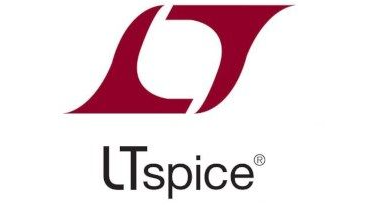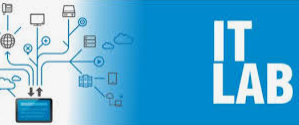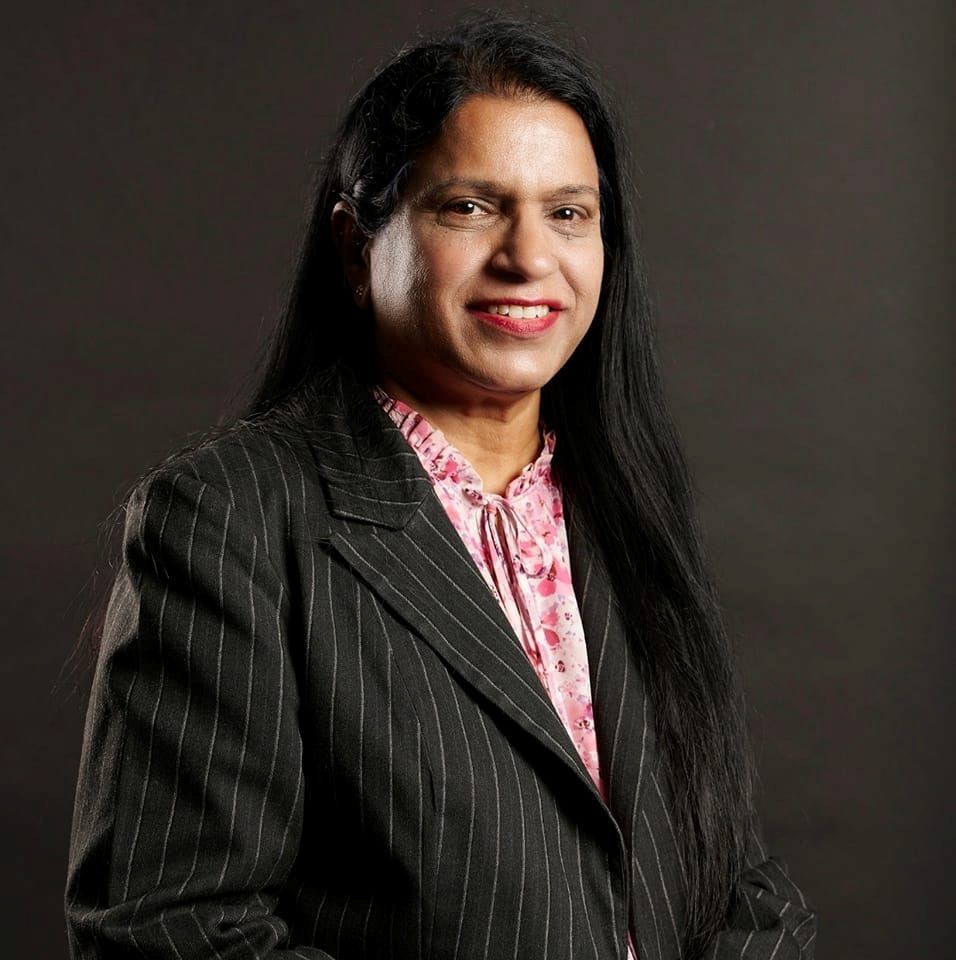This course is currently in a Teach-Out mode. New enrolments into this course are no longer accepted.
Deliver systems that make a difference
What do home automation, self-driving vehicles and the NBN all have in common? They all rely on networks. When you study a Masters of Engineering Telecommunications you’ll learn to design and construct systems like these. If you enjoy solving complex problems and building systems using your hands, this course is for you.
Duration
2 Years (4 Trimesters) Full-Time or Equivalent Part-TimeIntakes
On Teach-Out ModeLocation
Melbourne Campus OnlyAQF Level
Level 9| Duration 2 Years (4 Trimesters) Full-Time or Equivalent Part-Time | |
| Intakes -On Teach-Out Mode | |
| Location Melbourne Campus Only | |
| AQF Level Level 9 |
Get the edge
This course is designed by a team of experienced industry professionals. It will extend your knowledge giving you the edge you need for a successful career in telecommunications and networking.
You’ll learn about the planning, design, implementation, management and maintenance of telecommunication systems and networks.
An essential part of the course is hands-on work with the latest hardware and software. You’ll get to choose from a broad range of electives in IT, computer networking, systems analysis and security.
This course encourages innovation and creativity. You’ll learn to investigate problems, follow your instincts and work with others on learning challenges. And you’ll graduate ready to take on a range of roles in industry.
One skill-set, many applications
Telecommunications engineering is a highly specialised field. It focuses on the design, construction, installation, service and support of telecommunications equipment and systems.
Projects can include broadband systems, satellite communications, radio masts and mobile devices.
This course includes:
INDUSTRY PROJECTS
Learn how your knowledge can be applied in the workplace. We’re at the forefront of Work Integrated Learning.
HASSLE-FREE SUPPORT
Our lecturers are approachable and helpful. We offer more support than a traditional university.
HANDS-ON-LEARNING
Students pick MIT because they will get the practical experience they need to succeed. Learn both theory and practice.
HACKATHON
Take part in engaging teaching events like the Hackathon, where you test your skills on real systems.
PIONEERING TECHNOLOGY
Design and construct systems that will advance the way we live and work.
CRITICAL THINKING
Develop your ability to tackle complex new problems through research, analysis and evaluation.
Career paths
Graduates of the Masters of Engineering (Telecommunications) have found jobs at Ericsson, Telstra, Optus, Australian Defence Industry, Mercedes-Benz, Hazelhurst, TPG, NBN, Harvey Norma and more.
A Master in Engineering Telecommunications could lead to jobs like these:
- Industrial Design Engineers
- Network Architects
- Network Analyst
- Broadcasting Technician
- Communications Engineer
- Microwave Engineer
- Communications Lines-person
- Electronics Engineering Associate
- Security System Technician
- Telecommunications Technician
- Electrical Engineer
- Electronic Equipment Technician
Professional recognition and accreditation
The Master of Engineering (Telecommunications) is fully accredited by Engineers Australia at the Professional Engineers level. Graduates of this program are eligible for membership at the Professional level of Engineers Australia according to the Washington Accord.
Your engineering accreditation is recognised around the world in countries that are signatories of the Washington Accord . Other countries also are likely to recognise the Washington Accord qualification as the highest engineering accreditation than the accord, but it is not guaranteed.
MIT’s courses are accredited by TEQSA Tertiary Education Quality and Standards Agency. TEQSA is Australia’s independent national quality assurance and regulatory agency for higher education in Australia
Course structure
Each unit consists of 20 credit points. A full-time study load is 60 credit points per Trimester. M.Eng.(Tel) comprises ten core units and two electives. Electives are at Level 5 or 6 (Advanced Study).
This study plan may change according to unit availability, credit transfers or Recognition of Prior Learning.
As part of the Master of Engineering (Telecommunication) degree, you’ll have access to the Work Integrated Learning unit and two Project Units:
MIT’s School of IT & Engineering has designed these units to provide you with real-world experience, working for an industry client.
The Industry Experience unit involves twelve weeks (full-time) or 24 weeks (part-time) industry placement.
The additional two project units provide you with a capstone final year project in a team environment through research, analysis and development in the telecommunications industry.
You’ll learn to tackle complex real-world problems using technical and creative skills.
Industry Experience
A crucial part of Master of Engineering (Telecommunication) is the Work Integrated Learning component through the unit ME700 . This allows students to put their theoretical knowledge into practice in a real workplace. We offer a wide range of industry partnerships to give students access to a range of employers.
This is a mandatory component for awarding of the degree. Students are required to undertake Industry Placement of twelve weeks (full-time) or 24 weeks (part-time).
If a third party is required to find the placement, a fee of up to $2,500 (currently) will incur - for which the student is responsible. This industry experience is designed to meet Engineers Australia accreditation requirements.
Industry-Based Projects and Internships
Mapping Engineering Stage 1 Competency Standards
Read more about why you should study telecommunications engineeringCourse units
Master of Engineering - TelecommunicationsCommon Core Units
- AIM100 Academic Integrity Module
- ME504 Advanced Networking
- ME505 Antennas in Mobile & Satellite Communication Systems
- ME502 Overview of Digital Communication
- ME606 Digital Signal Processing
- ME600 Engineering Project Management
- ME503 Telecommunication System Engineering
- ME700 Industry Experience
- ME603 Project 1
- ME601 Telecommunication Modeling and simulation
- ME604 Project 2
- ME602 Mobile and Personal Communication Systems
Electives
Students should select two electives from the pool of electives
The Course Coordinator may approve another elective from 500 or 600 level units, subject to meeting pre-requisites.
- ME501 Professional Engineering Practice
- ME605 Cloud Engineering
- ME693 Software-Defined Radio Communication
- MN504 Networked Application Management
- MN506 System Management
- MN507 Overview of Software Engineering
- MN604 IT Security Management
- MN603 Wireless Network and Security
- MN605 Enterprise Network Design
- MN610 Virtual Private Networks
- MN611 System Architecture
- MN612 Enterprise Architecture
Industry Experience
A crucial part of Master of Engineering (Telecommunication) is the Work Integrated Learning component through the unit ME700 . This allows students to put their theoretical knowledge into practice in a real workplace. We offer a wide range of industry partnerships to give students access to a range of employers.
This is a mandatory component for awarding of the degree. Students are required to undertake Industry Placement of twelve weeks (full-time) or 24 weeks (part-time).
If a third party is required to find the placement, a fee of up to $2,500 (currently) will incur - for which the student is responsible. This industry experience is designed to meet Engineers Australia accreditation requirements.
Industry-Based Projects and Internships
Mapping Engineering Stage 1 Competency Standards
Read more about why you should study telecommunications engineering
Please note:
- The program is available for each intake but note some units of study are subject to quotas and minimum enrolment requirements.
- Not all units of study are available every Trimester and changes in program structure occur from time to time.
- Program structures and units are subject to change through the process of regular course revision. There is no guarantee that every unit will be offered in any particular trimester.
Learning outcomes
Graduates of this course will:
- Possess a body of knowledge that includes state-of-the-art developments in the area of telecommunications
- Be able to investigate and evaluate key telecommunication technologies and apply them effectively in an organisation
- Exercise critical thinking and problem-solving ability to tackle complex new problems
- Demonstrate significant research, analysis and evaluation skills in the telecommunications discipline
- Be able to adapt their knowledge to different circumstances
- Be capable of independent professional work with a high level of autonomy and accountability
- Be able to collaborate and communicate with others in a professional setting
Entry requirements
Applicants must have successfully completed a Bachelor degree of at least four years duration in an area of Engineering related to Telecommunications, Electronics, or Electrical Engineering.
| IELTS Academic |
Overall score 6.0 (no band less than 5.5) |
|---|---|
| TOEFL ibt |
Overall score 60-78 with minimum scores: Reading 12, Listening 11, Speaking 17, Writing 20 |
| PTE Academic |
Overall score 52 with (no score less than 50) |
| Cambridge CAE |
CAE score of 169 (no band less than 162) |
IELTS Academic
Overall score 6.0
(no band less than 5.5)
TOEFL iBT
Overall score 60–78
Minimum: Reading 12, Listening 11, Speaking 17, Writing 20
PTE Academic
Overall score 52
(no score less than 50)
Cambridge CAE
Score of 169
(no band less than 162)
For further information, see the links below:
Credit Transfer
Credit transfer provides students with credit for learning already achieved. Applicants are assessed on a case-by-case basis. Learn more about credit transfer .
Applications for credit transfer must be made before or during orientation and enrolment week.
Recognition of Prior LearningRecognition of prior learning (RPL) allows students to gain credit towards their course based on their prior learning. This includes formal, informal and non‐formal learning. Applicants are assessed on a case-by-case basis. Learn more about recognition of prior learning .
Applications for RPL must be made before or during orientation and enrolment week.
Applying for Credit Transfer/RPLIf you are seeking credit transfer for the same or similar unit/s previously completed at a different institute, you must submit the following supporting documents with your application:
- Certified copy of relevant certificates and results for any studies that you have completed
- Unit outlines
- Credit Transfer Application Form – download the form here
Read more about credit transfer here.
Submitting the Credit Transfer/ RPL ApplicationOnce complete, scan and email your application to us.
Gain real-world experience using tools









State-of-the-art facilities


FEE INFORMATION
Study now and pay later with FEE-HELP.Students studying at MIT may be eligible for FEE-HELP. FEE-HELP is a loan scheme that assists eligible fee-paying students to pay their tuition fees. An eligible person may borrow up to the FEE-HELP limit to pay tuition fees over their lifetime.
Read more about FEE-HELP or visit Study Assist.
Tuition feesFor fee information visit the tuition fee page.
Financial assistance
Youth and student allowances
For details on Youth Allowance, Austudy and ABSTUDY, visit Human Services.
FEE INFORMATION
Tuition FeesFor the latest fee information visit the Tuition Fee Page.
If you have any questions regarding fees or payment options, please contact the Admissions Team at enquiries@mit.edu.au
Frequently asked questionsS
What is Engineering Telecommunications?Engineering Telecommunications is the industry responsible for designing, planning, managing and installing the electrical and computing components of telecommunications networks. They use fibre optic, copper and wireless cloud networks to create networks that can integrate voice, data and video systems that allow us to communicate more effectively.
Does a Master of Engineering in Telecommunications have good career opportunities?Yes. Telecommunications has been identified as an industry with strong expected growth and good employment outcomes. Highly skilled telecommunications professionals are in high demand as technology becomes increasingly powerful, inexpensive and accessible. The Master of Engineering (Telecommunications) provides students with a solid foundation, focusing on the planning, design, implementation, management and maintenance of telecommunication systems and networks. This puts them in a strong position to find employment.
What qualifications do I need for a Master of Engineering in Telecommunications?Applicants must have successfully completed a Bachelor degree of at least four years duration in an area of Engineering related to Telecommunications or Networks, such as Computer Systems, Electronics, or Electrical Engineering.
Have more questions?
Find answers to your FAQ here:
PREPARING YOUR APPLICATION
Before applying, make sure you:
- Meet the course entry requirements for the course you want to apply for.
- Have all your details ready—for example, your educational history, personal details, academic transcripts and award certificates.
What to include with your application?
- Evidence of completion of your previous studies that is award certificates or transcript with completion confirmed.
- Proof of identity, for example, your passport or birth certificate or citizenship.
- Evidence of English language skills (if you completed studies from a non-English speaking country).
- Proof of your permanent residency or citizenship if you were born overseas.
Certifying your academic documents
You should provide certified copies of your academic and other essential documents at the time of application.
Uploading your documents
You must upload all requested documents at the time of the application.
Learn more about the whole of the institution set here.
Contact us
Phone our friendly student recruitment team on 1800 648 669.
enquiries@mit.edu.au
Get the edge
This course is designed by a team of experienced industry professionals. It will extend your knowledge giving you the edge you need for a successful career in telecommunications and networking.
You’ll learn about the planning, design, implementation, management and maintenance of telecommunication systems and networks.
An essential part of the course is hands-on work with the latest hardware and software. You’ll get to choose from a broad range of electives in IT, computer networking, systems analysis and security.
This course encourages innovation and creativity. You’ll learn to investigate problems, follow your instincts and work with others on learning challenges. And you’ll graduate ready to take on a range of roles in industry.
One skill-set, many applications
Telecommunications engineering is a highly specialised field. It focuses on the design, construction, installation, service and support of telecommunications equipment and systems.
Projects can include broadband systems, satellite communications, radio masts and mobile devices.
This course includes:
INDUSTRY PROJECTS
Learn how your knowledge can be applied in the workplace. We’re at the forefront of Work Integrated Learning.
HASSLE-FREE SUPPORT
Our lecturers are approachable and helpful. We offer more support than a traditional university.
HANDS-ON-LEARNING
Students pick MIT because they will get the practical experience they need to succeed. Learn both theory and practice.
HACKATHON
Take part in engaging teaching events like the Hackathon, where you test your skills on real systems.
PIONEERING TECHNOLOGY
Design and construct systems that will advance the way we live and work.
CRITICAL THINKING
Develop your ability to tackle complex new problems through research, analysis and evaluation.
Career paths
Graduates of the Masters of Engineering (Telecommunications) have found jobs at Ericsson, Telstra, Optus, Australian Defence Industry, Mercedes-Benz, Hazelhurst, TPG, NBN, Harvey Norma and more.
A Master in Engineering Telecommunications could lead to jobs like these:
- Industrial Design Engineers
- Network Architects
- Network Analyst
- Broadcasting Technician
- Communications Engineer
- Microwave Engineer
- Communications Lines-person
- Electronics Engineering Associate
- Security System Technician
- Telecommunications Technician
- Electrical Engineer
- Electronic Equipment Technician
Professional recognition and accreditation
The Master of Engineering (Telecommunications) is fully accredited by Engineers Australia at the Professional Engineers level. Graduates of this program are eligible for membership at the Professional level of Engineers Australia according to the Washington Accord.
Your engineering accreditation is recognised around the world in countries that are signatories of the Washington Accord . Other countries also are likely to recognise the Washington Accord qualification as the highest engineering accreditation than the accord, but it is not guaranteed.
MIT’s courses are accredited by TEQSA Tertiary Education Quality and Standards Agency. TEQSA is Australia’s independent national quality assurance and regulatory agency for higher education in Australia
Course structure
Each unit consists of 20 credit points. A full-time study load is 60 credit points per Trimester. M.Eng.(Tel) comprises ten core units and two electives. Electives are at Level 5 or 6 (Advanced Study).
This study plan may change according to unit availability, credit transfers or Recognition of Prior Learning.
As part of the Master of Engineering (Telecommunication) degree, you’ll have access to the Work Integrated Learning unit and two Project Units:
MIT’s School of IT & Engineering has designed these units to provide you with real-world experience, working for an industry client.
The Industry Experience unit involves twelve weeks (full-time) or 24 weeks (part-time) industry placement.
The additional two project units provide you with a capstone final year project in a team environment through research, analysis and development in the telecommunications industry.
You’ll learn to tackle complex real-world problems using technical and creative skills.
Industry Experience
A crucial part of Master of Engineering (Telecommunication) is the Work Integrated Learning component through the unit ME700 . This allows students to put their theoretical knowledge into practice in a real workplace. We offer a wide range of industry partnerships to give students access to a range of employers.
This is a mandatory component for awarding of the degree. Students are required to undertake Industry Placement of twelve weeks (full-time) or 24 weeks (part-time).
If a third party is required to find the placement, a fee of up to $2,500 (currently) will incur - for which the student is responsible. This industry experience is designed to meet Engineers Australia accreditation requirements.
Industry-Based Projects and Internships
Mapping Engineering Stage 1 Competency Standards
Read more about why you should study telecommunications engineering
Course units
Master of Engineering - Telecommunications
Common Core Units
- AIM100 Academic Integrity Module
- ME504 Advanced Networking
- ME505 Antennas in Mobile & Satellite Communication Systems
- ME502 Overview of Digital Communication
- ME606 Digital Signal Processing
- ME600 Engineering Project Management
- ME503 Telecommunication System Engineering
- ME700 Industry Experience
- ME603 Project 1
- ME601 Telecommunication Modeling and simulation
- ME604 Project 2
- ME602 Mobile and Personal Communication Systems
Electives
Students should select two electives from the pool of electives
The Course Coordinator may approve another elective from 500 or 600 level units, subject to meeting pre-requisites.
- ME501 Professional Engineering Practice
- ME605 Cloud Engineering
- ME693 Software-Defined Radio Communication
- MN504 Networked Application Management
- MN506 System Management
- MN507 Overview of Software Engineering
- MN604 IT Security Management
- MN603 Wireless Network and Security
- MN605 Enterprise Network Design
- MN610 Virtual Private Networks
- MN611 System Architecture
- MN612 Enterprise Architecture
Industry Experience
A crucial part of Master of Engineering (Telecommunication) is the Work Integrated Learning component through the unit ME700 . This allows students to put their theoretical knowledge into practice in a real workplace. We offer a wide range of industry partnerships to give students access to a range of employers.
This is a mandatory component for awarding of the degree. Students are required to undertake Industry Placement of twelve weeks (full-time) or 24 weeks (part-time).
If a third party is required to find the placement, a fee of up to $2,500 (currently) will incur - for which the student is responsible. This industry experience is designed to meet Engineers Australia accreditation requirements.
Industry-Based Projects and Internships
Mapping Engineering Stage 1 Competency Standards
Read more about why you should study telecommunications engineering
Please note:
- The program is available for each intake but note some units of study are subject to quotas and minimum enrolment requirements.
- Not all units of study are available every Trimester and changes in program structure occur from time to time.
- Program structures and units are subject to change through the process of regular course revision. There is no guarantee that every unit will be offered in any particular trimester.
Learning outcomes
Graduates of this course will:
- Possess a body of knowledge that includes state-of-the-art developments in the area of telecommunications
- Be able to investigate and evaluate key telecommunication technologies and apply them effectively in an organisation
- Exercise critical thinking and problem-solving ability to tackle complex new problems
- Demonstrate significant research, analysis and evaluation skills in the telecommunications discipline
- Be able to adapt their knowledge to different circumstances
- Be capable of independent professional work with a high level of autonomy and accountability
- Be able to collaborate and communicate with others in a professional setting
Entry requirements
Applicants must have successfully completed a Bachelor degree of at least four years duration in an area of Engineering related to Telecommunications, Electronics, or Electrical Engineering.
| IELTS Academic | Overall score 6.0 (no band less than 5.5) |
|---|---|
| TOEFL iBT | Overall score 60–78 with minimum scores: Reading 12, Listening 11, Speaking 17, Writing 20 |
| PTE Academic | Overall score 52 (no score less than 50) |
| Cambridge CAE | CAE score of 169 (no band less than 162) |
IELTS Academic
Overall score 6.0
(no band less than 5.5)
TOEFL iBT
Overall score 60–78
Minimum scores: Reading 12, Listening 11, Speaking 17, Writing 20
PTE Academic
Overall score 52
(no score less than 50)
Cambridge CAE
Score of 169
(no band less than 162)
For further information, see the links below:
Credit Transfer
Credit transfer provides students with credit for learning already achieved. Applicants are assessed on a case-by-case basis. Learn more about credit transfer .
Applications for credit transfer must be made before or during orientation and enrolment week.
Recognition of Prior LearningRecognition of prior learning (RPL) allows students to gain credit towards their course based on their prior learning. This includes formal, informal and non‐formal learning. Applicants are assessed on a case-by-case basis. Learn more about recognition of prior learning .
Applications for RPL must be made before or during orientation and enrolment week.
Applying for Credit Transfer/RPLIf you are seeking credit transfer for the same or similar unit/s previously completed at a different institute, you must submit the following supporting documents with your application:
- Certified copy of relevant certificates and results for any studies that you have completed
- Unit outlines
- Credit Transfer Application Form – download the form here
Read more about credit transfer here.
Submitting the Credit Transfer/ RPL ApplicationOnce complete, scan and email your application to us.
Gain real-world experience using tools









State-of-the-art facilities


FEE INFORMATION
Study now and pay later with FEE-HELP.Students studying at MIT may be eligible for FEE-HELP. FEE-HELP is a loan scheme that assists eligible fee-paying students to pay their tuition fees. An eligible person may borrow up to the FEE-HELP limit to pay tuition fees over their lifetime.
Read more about FEE-HELP or visit Study Assist.
Tuition feesFor fee information visit the tuition fee page.
Financial assistance
Youth and student allowances
For details on Youth Allowance, Austudy and ABSTUDY, visit Human Services.
FEE INFORMATION
Tuition FeesFor the latest fee information visit the Tuition Fee Page.
If you have any questions regarding fees or payment options, please contact the Admissions Team at enquiries@mit.edu.au
Frequently asked questions
What is Engineering Telecommunications?Engineering Telecommunications is the industry responsible for designing, planning, managing and installing the electrical and computing components of telecommunications networks. They use fibre optic, copper and wireless cloud networks to create networks that can integrate voice, data and video systems that allow us to communicate more effectively.
Does a Master of Engineering in Telecommunications have good career opportunities?Yes. Telecommunications has been identified as an industry with strong expected growth and good employment outcomes. Highly skilled telecommunications professionals are in high demand as technology becomes increasingly powerful, inexpensive and accessible. The Master of Engineering (Telecommunications) provides students with a solid foundation, focusing on the planning, design, implementation, management and maintenance of telecommunication systems and networks. This puts them in a strong position to find employment.
What qualifications do I need for a Master of Engineering in Telecommunications?Applicants must have successfully completed a Bachelor degree of at least four years duration in an area of Engineering related to Telecommunications or Networks, such as Computer Systems, Electronics, or Electrical Engineering.
Have more questions?
Find answers to your FAQ here:
Preparing your application
Before applying, make sure you:
- Meet the course entry requirements for the course you want to apply for.
- Have all your details ready—for example, your educational history, personal details, academic transcripts and award certificates.
What to include with your application?
- Evidence of completion of your previous studies such as award certificates or transcripts with completion confirmed.
- Proof of identity (e.g. your passport, birth certificate, or citizenship document).
- Evidence of English language skills (if you completed studies from a non-English speaking country).
- Proof of your permanent residency or citizenship if you were born overseas.
Certifying your academic documents
You should provide certified copies of your academic and other essential documents at the time of application.
Uploading your documents
You must upload all requested documents at the time of the application.
Learn more about the whole of the institution set here.
Contact us
Phone our friendly student recruitment team on
1800 648 669
enquiries@mit.edu.au
Industry projects
At MIT, we ensure all students test their knowledge beyond the classroom in an industry internship. You’ll gain valuable experience during an industry project. It’s a fantastic opportunity to develop skills such as communication, collaboration and project management. You’ll extend your skills and expand your networks, putting you in a strong position for future job opportunities.
- Internet security: Developing a system to detect phishing websites using a machine learning framework Application
- Wearable tech: Sensor design for a Wireless Body Area Network (WBAN) using Raspberry Pi
- Education: Designing and implementing a student attendance system via mobile devices
- Mobile computing: Development of Inductive Power Coupled Charger (Wireless Charger) for small devices
- Data modelling: Telecommunications algorithm development for data distribution modelling in the preparation phase of the Enhanced Content-Centric Network (ECCN)
- Telecommunications algorithm: Development of an algorithm to add positioning capability to LoRa wireless network without A GPS receiver
Our staff are leading industry experts.

Prof. Savitri Bevinakoppa
Head of School – SITE and Course Coordinator
An expert in computing and mathematics, she has worked in computer science since 1989 watching the field as it evolves. From the early days of parallel computing to the complex networks we use today, Savitri has been at the forefront of it all. She has been embedded in our IT department developing and running our courses for more than a decade.
She has completed her Bachelor of Engineering (Electronics and Communication) in 1989 and Doctor of Philosophy (PhD) at Victoria University, Melbourne in 1996, writing her thesis on “Still Image Compression on Parallel Computer Architectures”. Savitri has more than 30 years of teaching and research experience in Engineering and Information Technology (IT) disciplines and has also worked in the industry as a manager for more than 10 years. She has demonstrated continuing scholarly and professional involvement in both learning & teaching and research, publishing a number of books and research papers nationally and internationally. She has obtained several industry grants and supervised many research students and research associates. She has chaired a number of conferences in multi-disciplinary areas and edited their proceedings.
Savitri has been involved in MIT Learning and Teaching Committee as a member and designed and developed courses in Engineering, Networking and Data Analytics. Previously, she was on the academic board for more than 6 years and worked as an acting head, School of IT and Engineering.
Join a Supportive Network
When you study with us, you’ll make friends and industry connections that last a lifetime. Our welcoming student support team will help you start your career on the right foot and stay in touch as your career progresses. Our alumni network is active and encouraging.


